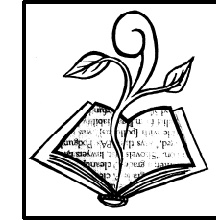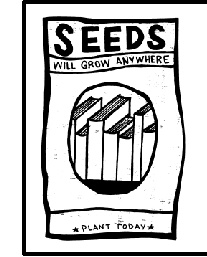

|

|

|

|
| |
|
|||||
|
The Forbidden Stories of Marta Veneranda When I was young--and even now, sometimes--I would imagine that I had been transported inside a friend's body and was expected to carry out that person's life. I wondered how well I would be able to figure out what to do and how to react. It was terrifying and delicious to contemplate. That we are imprisoned in our own bodies and consciousness is part of the human condition. We hunger for reports from terra incognita. Just about all literature provides this news from inside; The Forbidden Stories of Marta Veneranda provides it with special intensity. This collection of linked stories, which was first published in Spanish and won the
In those stories, the narrator all but disappears, awash in other people's lives. We in turn become privy to the labyrinthine thought processes and life stories of the interviewees. We may not become them, but we become the gatherer of the tales. Marta Veneranda is us. It becomes apparent that interviews are with people who are friends of friends. Most have a connection with Iris, a lawyer, whose secret relationship with Veneranda is hinted at in the end. Almost all are Cuban exiles in New York, all but two are women. They articulate their own reasons for speaking of the forbidden, and we should or shouldn't take the explanations at face value. A couple of them say they need to talk because the secret experience shook up their previous notions about their own identities. One is too ashamed to tell his therapist, because the two of them are old friends and he's afraid "he'll think I've gone crazy." Another tells because she wants an opinion. One claims that telling her story will help her own writing; another wants absolution; and others, to exorcise obsessions. It used to be that the therapist was the secular priest. Here that role is taken up by the interviewer. No one in these stories mentions the Roman Catholic confessional--when they speak of religion, it is mostly in the context of the past, in Cuba. What do they talk about when they talk about the forbidden? Here are the goods, without giving too much away: A man has sex with a 400-pound neighbor whose terrible stench is transformed into an enticing aroma. A gay man doesn't tell his lover that he watches pornography--hetero pornography-- to become aroused. A woman offers her body for sex to save a friend's job. One woman admits to killing her husband; another wants assurance that she did not kill hers, accidentally on purpose. Women find themselves attracted to other women, and act upon it or do not. When they do become involved with other women, they often find sexual satisfaction: "I caressed and kissed every piece and fold of that body with an intensity and passion I had never put into my lovemaking before, and she reciprocated with furious splendor." Men can satisfy, too, but rarely husbands: "Outside myself, in orgasms that seemed to last eternities, enormous red poppies blossomed in an instant before my closed eyes. That is not a metaphor. I saw those flowers each time I came, and I was happy." This is not the instant and ersatz intimacy of TV talk shows. These characters don't
Rivera-Valdés is as skilled as a good lover in building anticipation. At the end of the last story I was trembling with her delays--the interviewee has said that she avoided sex upon meeting her object of desire, Rocío, in New York, because the other woman was so much younger. She changes her mind, and visits Rocío in Cuba. But first--she must call her potential lover's neighbor because she doesn't have a phone, must have a long conversation with her hostess, climb a narrow staircase. Then she reports: "She took off the pale pink satin robe I'd given her in New York. The glow of that cloth on the bed accented the raggedness of the sheets on which we were about to make love." And they do. After some talking. Specifically, after they speak to one another in the words that the older woman used to hear from Cuban men, while she herself said nothing. Now they both speak, and both are satisfied. But not all of the narrative tension is sexual. Rivera-Valdés brings us near to the precipice, making me suspect, for example, that one character would go blind (she doesn't). In another story, growing attraction leads to ... no action. And yet the speaker is deeply touched. And as it becomes clear early on that these people know one another, I was waiting for further links--for the gay narrator to be the gay lover in another story (he isn't). Rivera-Valdés is playful and witty. These are secrets, and yet the joke's on the interviewer, and us. A secret told with great fanfare becomes a passing phrase in the next story or chapter. Are these true confessors dissembling? Or are we to imagine they feel freer to open up to their friends after unburdening themselves to Marta Veneranda? Hovering over most of these stories is Cuba--as haunting as childhood, as backdrop to childhood. "Your being Cuban makes me remember things," Mayté tells the narrator, and both she and the next subject, Rodolfo, talk of their trauma as children in Operation Pedro Pan, in which anti-Castro parents sent their young to the United States, not joining their offspring until years later in some cases. She also describes in rich detail the emigres' lot: working early on in factory jobs that lead to independence, then white-collar jobs that take away from roots. Often the characters long for the island of their youth. A man says of his small
Cuba as motherland looms especially over the last story, when the interviewee makes black-and-white distinctions between the irrational and the scientific. She much prefers the first category over the rationality of her "white" psychiatrist husband; she finds things Cuban and Latino more homey and fulfilling. She follows the old superstitions--bathes twice on San Juan's day so she won't get worms--but is catholic in her tastes, examining her dreams for meaning, consulting a melting pot of esoteric reference books, visiting a spiritualist and an herbalist, finding solace in mofongo con chicharrones--"mashed plantains with crackling, which I hadn't had for years, ever since I had started with holistic health." When her husband fails to respond to her desires for spicier sex--he's jealous of a fluorescent orange dildo as if it were "a real penis inside of me,"--she looks elsewhere, settling down with another Cuban-American woman. Although at times the details fall into tedium, for the most part
The Forbidden Stories of Marta Veneranda is a wonderful voyeuristic
journey. What is it that women want? What do we all want? To be
listened to. To be known. Deeply. S.L. Wisenberg's short story collection, The Sweetheart Is In, has just been published by TriQuarterly Books/Northwestern University Press. She also maintains a Web site, www.slwisenberg.com.
|




